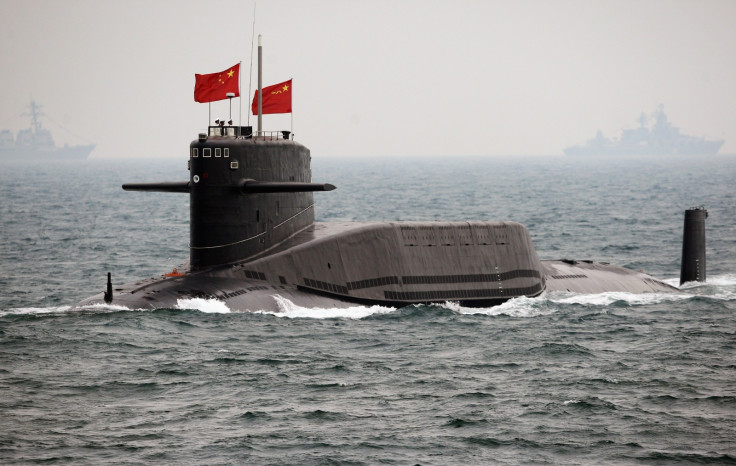China develops new 'humpback' nuclear submarines with 'capability of striking US'
The 'Jin' Type 094A carries 12 submarine-launched ballistic missiles known as 'big waves'.

Images of China's new nuclear submarines have emerged and are believed to carry a weapons arsenal powerful enough to reach the United States.
The 'Jin' Type 094A has a large 'hump' concealing 12 submarine-launched ballistic missiles known as 'big waves', with a range of over 11,000km (6,835m).
They are believed to be China's new generation of intercontinental-range ballistic missiles, the JL-3, the South China Morning Post reported.
First seen last year, it is claimed the vessels have been secretly modified to make them more aerodynamic in the water.
"The new missile could reach virtually the entire United States without leaving the heavily defended Yulin Naval Base (itself complete with underground shelters and docks for submarines) in Hainan Island," Popular Science stated.
"This vessel's ability to reach global targets while lurking in heavily defended coastal waters will significantly boost China's second strike capability (that is, the ability of a nuclear power to launch a retaliatory nuclear attack even after suffering a devastating conventional or nuclear attack)."
Though much of China's nuclear arsenal is unknown, the Federation of American Scientists estimated the state has roughly 260 warheads.
However, it is thought China holds a policy of maintaining a minimum deterrent with a no-first-use pledge.
The communist state is also one of five countries considered "nuclear-weapon states", that have signed the Treaty on Non-Proliferation of Nuclear Weapons. The US, the UK, France and Russia are also a party to the treaty.
The US Security Review Commission (USSRC) believes China is trying to expand its arsenal to rival US dominance.
Xinlang carries first ever photo of PLAN Type-094A Strategic Nuclear Submarine pic.twitter.com/AyIO6ana7t
— Bonnie Glaser / è‘›æ¥ä»ª (@BonnieGlaser) July 7, 2016
In a May 2016 report, Jordan Wilson, policy analyst at the USSRC, said: "The Chinese Communist Party perceives that its legitimacy in the eyes of China's citizens is based, in part, on its ability to demonstrate that it is capable of strengthening the nation and safeguarding China's territorial interests and claims.
"Yet the CCP leadership believes the United States' presence in the Asia Pacific could interfere with its ability to defend these interests and claims if a regional crisis were to arise.
"This concern has prompted Beijing to develop conventional missile capabilities to target US military facilities in the Asia Pacific in general, and Guam in particular, in order to expand China's options and improve its capacity to deter or deny US intervention during such a crisis."
© Copyright IBTimes 2025. All rights reserved.






















